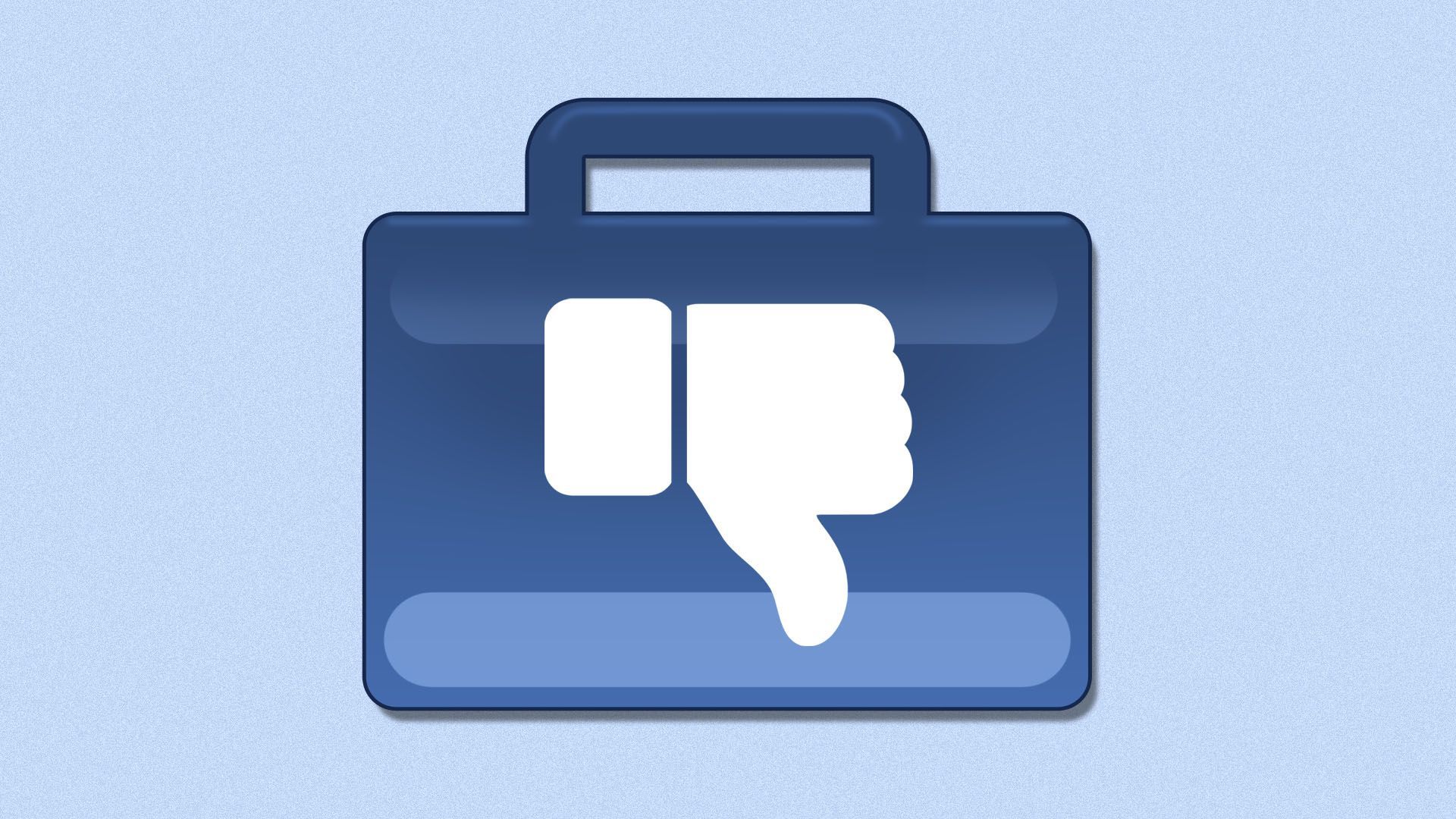Facebook's latest headache: Its own employees' posts
Add Axios as your preferred source to
see more of our stories on Google.

Illustration: Sarah Grillo/Axios
Facebook’s rules for what people can say on the world’s largest social network have been a long-term headache for the company, but now it faces similar troubles on the internal network its own staff uses.
Driving the news: As political arguments on Facebook’s employee discussion boards have grown more heated and divisive, the company ordered new restrictions on the forums earlier this month, which run on Facebook’s Workplace platform.
- Last week, the company banned employees from replacing their profile photos on the system with activist images.
Why it matters: Facebook’s difficulty managing its own employees using its own social network suggests that the company’s problems might be rooted more in the conception and design of its products than in the fiery state of today's general public discourse.
Catch up quick: Facebook, like most Silicon Valley companies, has long prided itself on an open culture embracing free debate, epitomized by regular staff meetings where CEO Mark Zuckerberg answers employee questions.
- The same culture extends to the version of Facebook Workplace that Facebook employees use as their company bulletin board and social network.
- But Trump-era divisions have stretched the company’s culture to the breaking point, according to numerous reports, leaked posts, and tapes of company meetings.
President Trump’s post following Black Lives Matter protests declaring “When the looting starts, the shooting starts” was particularly divisive. Zuckerberg's decision to give it a pass led some Facebook employees to conclude that the company was not living up to its ideals or fairly enforcing its rules. Disagreements among Facebook's workers grew heated.
- "“I’ve been very worried about … the level of disrespect and, in some cases, of vitriol that a lot of people in our internal community are directing towards each other as part of these debates,” Zuckerberg said, according to Buzzfeed News. “If you’re bullying your fellow colleagues into taking a position on something, then we will fire you.”
President Trump and racial injustice aren't the only topics angering Facebook's employees. A New York Times report highlighted acrimony over the company's parent leave policy during the pandemic, which some non-parents resented.
What's happening: After continued turmoil on Facebook’s internal message boards following the more recent Kenosha protests, Zuckerberg announced on Sept. 17 that Facebook’s Workplace would create “dedicated spaces…for discussing charged topics, with clear rules and strong moderation.”
- “What we’ve heard from our employees is that they want the option to join debates on social and political issues, rather than see them unexpectedly in their work feed," a Facebook spokesman told the Wall Street Journal.
Between the lines: What’s bugging so many Facebook workers is the same problem some of Facebook’s 3 billion users identified a long time ago.
- By shunting so many different dimensions of our online communications onto the same platform — from school connections to family members and workplace acquaintances to people with shared interests — Facebook makes it impossible to keep different facets of our lives from overlapping.
The scholar danah boyd popularized the phrase “context collapse” to describe the tendency of social networks to flatten our lives.
- Now that dynamic is pushing Facebook, which has staked out a content moderation policy that treads lightly on limiting political speech in public, to curtail the political speech of its own employees.
The catch: Facebook’s internal moderators will now have to figure out how to draw a clean line between “charged topics” and everything else.
- Everything Facebook touches today has a political dimension, and everything from user interface design to machine-learning code to marketing materials has social and political dimensions that can trigger “charged” exchanges.
Our thought bubble: If the new moderators for Facebook's Workplace can untangle this knot, maybe they can share their findings with the tens of thousands of paid contractors who moderate the Facebook that the rest of us use.
